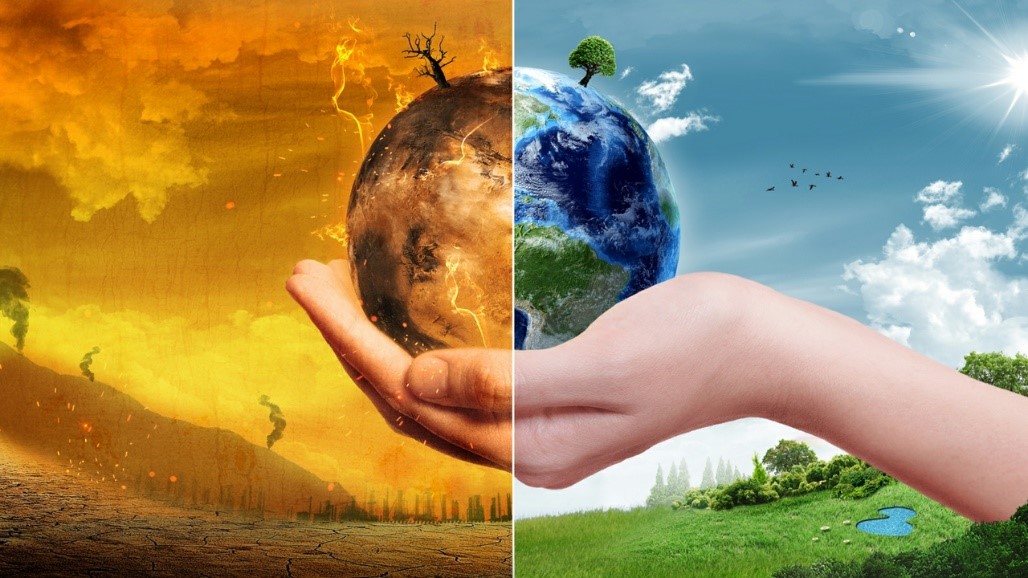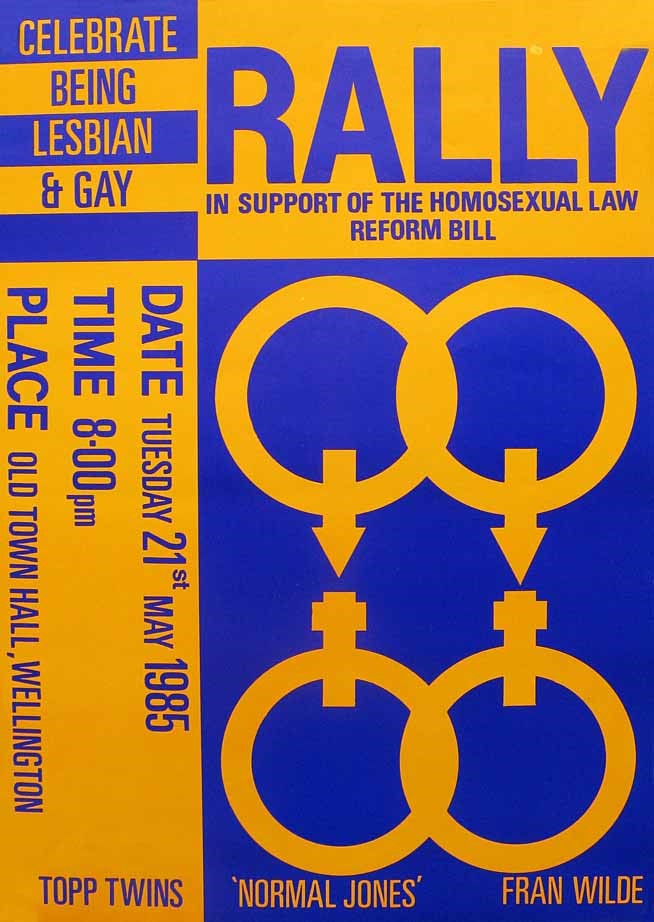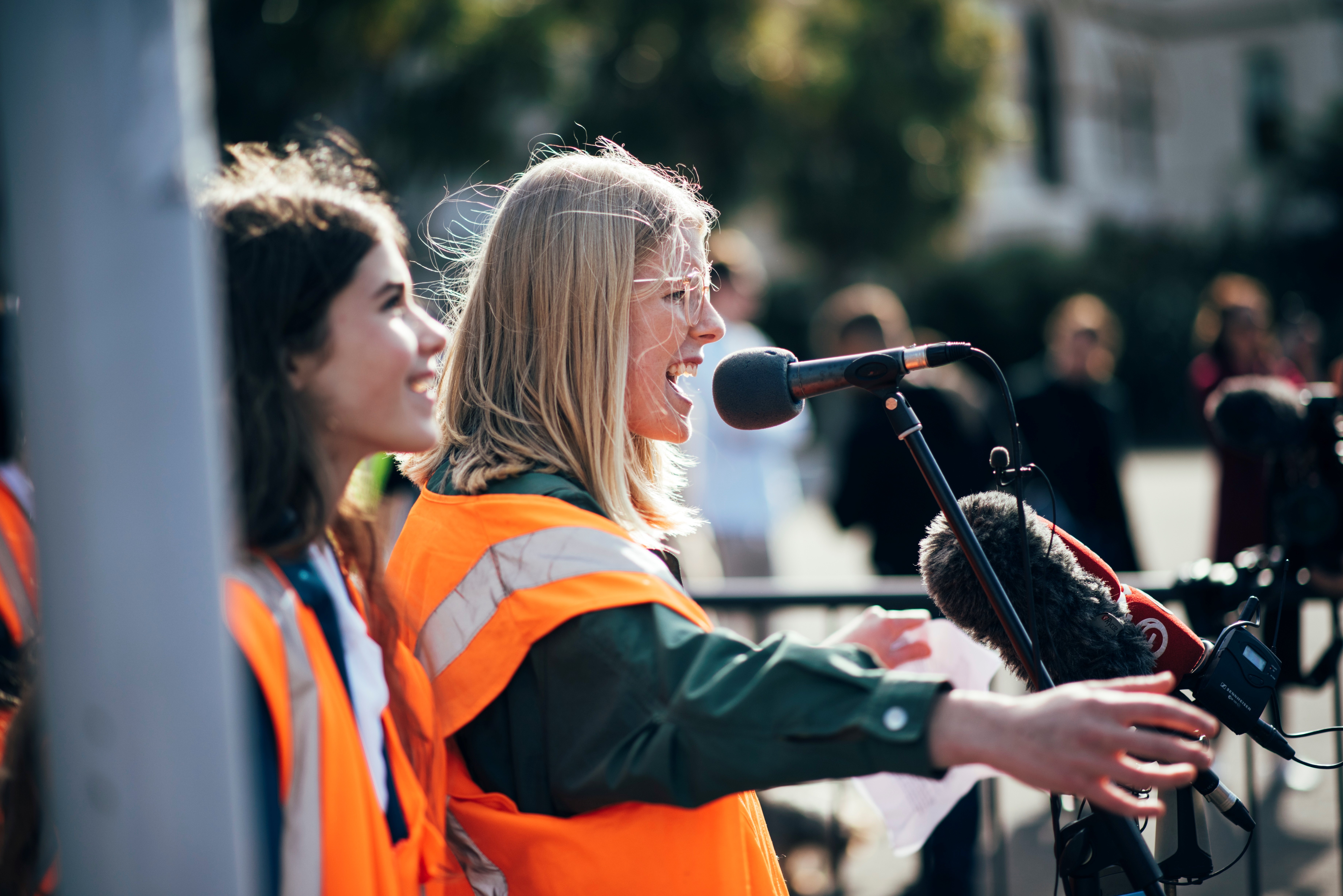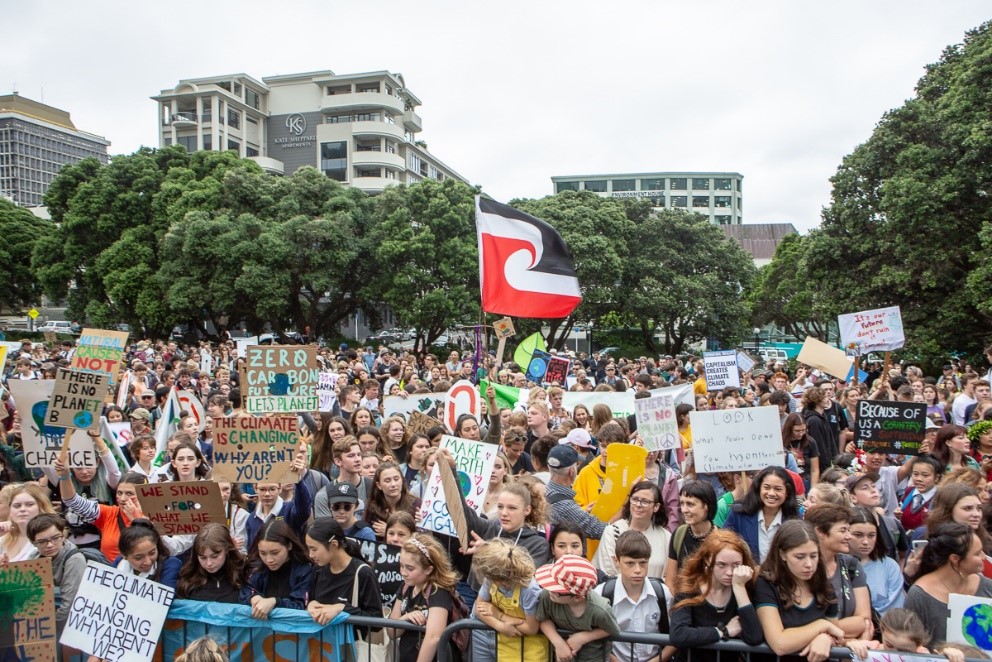
Climate Change challenges and champions. By Nik Bullard, History Communicator, Museums Wellington
The climate crisis is the biggest issue currently facing the planet and it is no longer possible to deny the science. If the planet has a chance of surviving, important steps to at least slow down the rate of climate change are needed and needed now. As we know, it is easy to feel overwhelmed and helpless in the face of potential ecological collapse. But we must believe there is hope and we need to start thinking about what can be done.
‘Until you start focusing on what needs to be done rather than what is politically possible, there is no hope. We cannot solve a crisis without treating it as a crisis. We need to keep the fossil fuels in the ground, and we need to focus on equity. And if solutions within the system are so impossible to find, maybe we should change the system itself’ stated (then 15 year old) Greta Thurnberg at her inaugural speech at the UN Climate Change conference in 2018.
Tackling the climate crisis will involve a major rethink of the way we live and work. An exciting future can be imagined where all people have clean air, drinkable water, liveable land, clean, affordable transport and meaningful jobs. This is an opportunity to ensure equity for all is at the forefront of this change.
The history of Wellington’s growth shows us that it isn’t the first time the city has had to transform itself to improve the environmental conditions for the good of its people. Lack of clean drinking water was finally addressed when the Wainuiomata scheme opened in 1884. Between 1885-1891, nearly 550 Wellingtonians (mainly the poor in the (then) slum-like area of Te Aro) died from typhoid and other infectious diseases, such as cholera, before a new sewage network finally opened in 1899. The filthy, polluting rubbish problem was dealt with in 1889 when the Destructor opened near Clyde Quay (Chaffers Park today) and free rubbish collection helped clean up the streets.
Lessons from history also show us that we can bring about relatively quick social and political change through collective action. In New Zealand we have experienced mass social movements based around social justice, equity, human rights and Māori land rights – the Homosexual Law Reform (1986), Bastion Point (1977-78), Dame Whina’s historic land march/hikoi (1975), the Springbok Tour (1981), Nuclear Free New Zealand (1987). These serve to remind us that positive social change is possible.

Homosexual Law Reform Poster, 1985
Museums Wellington collection
But how do we bring about the rapid social, political and economic change needed to halt the rise in carbon levels in time and ensure the ongoing viability of our atmosphere and bio-system?
Greenpeace activism
To reiterate Greta, ‘We need to keep the fossil fuels in the ground’. This is exactly what Greenpeace activists, Abigail Smith and Nick Hanafin had in mind on 23 July when they scaled the outside of the 29 storey Majestic Centre on Willis Street in Wellington. Their mission was to reach the 20th floor, where the headquarters of Austrian oil giant, OMV, is located, and deliver a message from New Zealanders that oil exploration is not welcome here. After a 10-hour climb, four banners and some writing on the window, they did just that.
Tom Etuata (Digital communicator) and I dashed down to the protest to find out what they were up to and why.
Alternatives to how we do things
Becoming Carbon Zero means finding alternatives to petroleum and generating sustainable energy. Wellington has the big advantage where the constant wind can power turbines and produce clean energy. Although there are wind farms around the hills of Wellington, an obvious solution would be to build more – this can not only power houses but could be used to recharge electric batteries for cars, scooters etc.

Credit: Wolfpoint
It’s not possible to separate climate change from equity. We need to ensure that people aren’t left behind with new technologies due to economic circumstances – equity must remain at the forefront of planning new technologies – not everyone can afford an electric car for example.
Affordable, clean public transport could be a solution to this equity issue and could also be powered by the wind. There is an urgent need for this if we are to see a massive reduction in the use of petrol driven cars. Wellington now has two electric scooter companies operating in the city – this has seen the reduction of people using cars to travel short distances. Schemes like this could be extended but affordability must remain central to the planning and roll-out.
The other major problem New Zealand faces is its reliance on intensive dairy farming, which in turn pollutes the land and waterways and produces large amounts of methane. As the planet’s environment changes, it is imperative we start diversifying and find ways to protect our food security for the future – we can’t live on milk alone! And planting more trees has got to help.

Credit: Wikimedia commons: A small farm in rural Hainan Province China by Anna Frodesiak licensed by Creative Commons CC0 1.0 Universal Public Domain Dedication
The Museum’s role in climate action
At Wellington Museum, we tell stories of how society has changed, very often for the better. We are using our role as a social history museum to bring the climate crisis to people’s consciousness and talk about positive ways of combating it. We are engaging with young people involved in this movement and giving them a voice.
In Conversation: Youth-led climate action
On Thursday 5 September at 12.15pm, the Museum will host a group of awesome and inspiring young leaders deeply committed to fighting climate change. We will hear about their mahi and their vision for change.
Kalo Afeaki

Photo credit: Kalo Afeaki
Kalo is of Tongan, Māori and Pālangi descent, with her Tongan roots coming from Ha’ato’u, Ha’apai and Tofoa, Tongatapu, her Māori roots coming from Ngāti Kahungunu te Wairoa, and her Pālangi roots coming from Northern Ireland and the UK. She grew up in Tonga and moved to Aotearoa in 2012. Her passion for combating climate change has been due to witnessing first-hand the destructive climate-related impacts occurring in Tonga, and the Pacific. She is currently the Assistant Coordinator for 350.org Pacific in Wellington – their work aims to amplify the voices of those most impacted by Climate Change in the Pacific.
Anya Buckholt-Payne

Photo credit: Anya Buckholt-Payne
Feeling failed by her school’s climate change education, at 15 Anya founded The Climate Challenge, an organisation which runs conferences across Aotearoa for and by high school students. Four years later over 1000 high school students have passed through the program and the organisation is expanding into classrooms, with climate change resources soon to go out to 40,000 students through a partner organisation.
Sophie Handford

Credit: Sophie Handford
At 18 years of age, Sophie Handford serves as the national coordinator for School Strike 4 Climate. The first NZ School Strike 4 Climate was on March 15 and 20,000 young people made their voices heard. It gained the attention of the entire country. School Strike 4 Climate is still planning and still taking action and have an inter-generational Strike planned for the 27th September. Climate change is a crisis and needs to be treated with urgency.
Siobhan Kelly

Photo credit: Siobhan Kelly
Siobhan Kelly is a young climate activist who aims to upskill other young people. Siobhan aspires for a clean, youth and diverse lead country and hopefully one day, world. She has a long history of activism and climate involvement having been involved in not-for-profit organizations since the age of 12. She now co-leads Wellington’s Generation Zero, the creators of the Zero Carbon Act (which she helped create at age 17).
Strike 4 Climate NZ
School Strike 4 Climate NZ is calling for a mass strike (including adults) on 27 September. Come along and stand in solidarity for climate justice and raise your voices to help save the planet!

Photo credit: School Strike for Climate, Wellington, 15 Mar 2019. Credit: David Tong – Own work, CC BY-SA 4.0, https://commons.wikimedia.org/w/index.php?curid=77347716